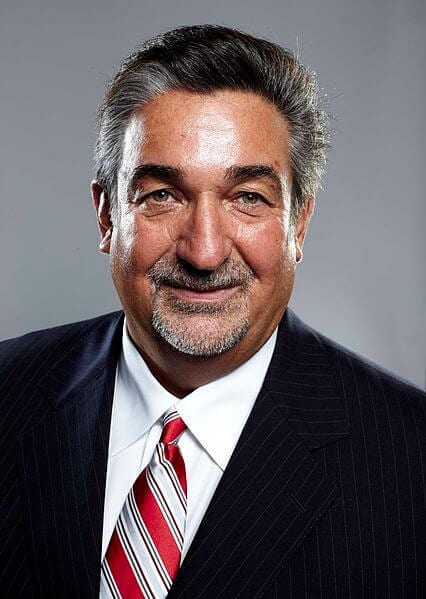The NBA continues to lead the way in terms of innovative approaches, whether it’s in free  agency, social media and public relations, or global expansion. But the league’s latest news-making event is in another area: team management. After yet another dreary 50-loss season, the Washington Wizards’ owner Ted Leonsis finally tired of constant defeats and half-filled arenas. He dismissed general manager Ernie Grunfeld after 16 seasons, but instead of rushing out and hiring a replacement, Leonsis decided it was time to take stock of his team’s entire structure.
agency, social media and public relations, or global expansion. But the league’s latest news-making event is in another area: team management. After yet another dreary 50-loss season, the Washington Wizards’ owner Ted Leonsis finally tired of constant defeats and half-filled arenas. He dismissed general manager Ernie Grunfeld after 16 seasons, but instead of rushing out and hiring a replacement, Leonsis decided it was time to take stock of his team’s entire structure.
“Last year we thought the Wizards were a 50-win team and we lost 50 games,” he told USA Today. “We had an existential experience, and I had to take responsibility for it. I said we’re going to spend 30-45 days in deep introspection and talk to every person in the organization. Every player, former coaches, former players, and we did that. The good news is that I found a lot of smart people whose voices were not reaching ownership, and I was very pleased with that.”
But no one anticipated what would result. Last week Leonsis announced a revampled, multi-layered, new front office structure. He’s calling it “Monumental Basketball.” The goal is to not only focus on day-to-day team operations, but spotlight player health and services and wellness for every basketball team in the hierarchy. That includes WNBA runner-up the Mystics, the G League’s Capital City Go-Go and the 2K (gaming league) Wizards District Gaming.
Tommy Sheppard was named general manager. Former NFL executive Sashi Brown becomes chief planning and operation officer. Daniel Medina is chief of athletic care and performance. Plus, former Georgetown and Princeton coach John Thompson III will head the player development and engagement department, assigned to help players with on and off court situations and also prepare them for life after they leave the NBA.
Most interestingly, while analytics is one part of Sheppard’s job description, it’s only among multiple responsibilities that include roster construction, the draft, free agency, scouting, and coaching. Medina will focus on medical, training, mental health, strength and conditioning, nutrition, and physical therapy and recovery.
Only time will tell whether all this results in a championship team. But the creation of this setup reflects the fact Leonsis understands these are different times. There’s a new breed of athlete, and a lot of the philosophies and attitudes from the past aren’t going to work in the 21st century.
“The only way you can get (a) competitive advantage is to try to get that added value from diversity,” he added. “We always (talk about) diversity and we misinterpret it just as skin color or gender, and diversity is really about different voices, different ideas and different experiences.”
Leonsis knows if the Wizards lose 50 games and miss the playoffs again, all this will be ridiculed as overly experimental, too radical, politically correct, whatever. He’s taking a huge risk from a PR standpoint in putting one man with an NFL background (Brown) and another who spent several years working in European soccer before a two-year stint with the Philadelphia 76ers (Medina) in partial charge of a basketball team.
But considering how bad the Wizards have been and how little interest there currently is in them among the Washington fan base, he’s got absolutely nothing to lose and everything to gain.


